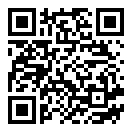Pages:
59-77
Receive Date: 2026/02/04
Accept Date: 2026/02/04
Abstract:
Definition of "knowledge" is one of the most important and at the same time the most challenging problems in the history of "epistemology". Farabi -heavily influenced by Plato's epistemological system, especially in the treatises "Theaetetus", "Meno", "Republic", "Euthyphro" and "Phaedo"- considers the possible and desired knowledge as "certain knowledge" in the field of worldview and theoretical and non-evident propositions. His definition of "certain knowledge" or "logical certainty in its most specific sense" includes the four pillars of "firm, true and stable belief". Almost all Muslim philosophers, logicians and epistemologists, including the ancients, the late ones and the contemporaries, have embraced the above definition and made their efforts to confirm and complete it. Leaving out the term "truth", however, Avicenna apparently turned to present a "tripartite definition" of knowledge. Regarding the absence of the term "truth" in Avicenna's definition of "knowledge", two hypotheses can generally be imagined: renunciation and deviation, or his adherence to the celebrated definition. Researchers of philosophy and epistemology have accepted the second hypothesis and have proposed at least two interpretations and justifications in order to prove their claim. In their research and by accepting the second hypothesis, the authors have critically repudiated the arguments for other authors presenting a third and novel interpretation. Having cited four evidences from Avicenna's own works, the authors have vindicated the main claim (i.e. Avicenna's commitment and adherence to the Quadruple definition of Farabi and celebrated philosophers and the fact that Avicenna's omission of the term "truth" in the definition of knowledge is merely a matter of formality).
چکیده و کلیدواژه فارسی (Persian)
Title :تعریف سه جزئی ابن سینا از معرفت؛ عدول یا پایبندی به تعریف چهارجزئی فارابی؟
Abstract:
مسئلۀ تعریف «معرفت»، از مهمترین و در عین حال پرچالشترین مسائل در طول تاریخ دانش «معرفتشناسی» است. فارابی ـ با تأثیرپذیری فراوان از نظام شناختشناسی افلاطون، بهویژه در رسالههای «تئتتوس»، «منون»، «جمهور»، «اوتیفرون» و «فایدون» ـ معرفت ممکن و مطلوب در حوزۀ جهانبینی و گزارههای نظری و غیر بدیهی را «معرفت یقینی» میداند. تعریف وی از «معرفت یقینی» یا همان «یقین منطقی بالمعنی الأخص» مشتمل بر چهار رکن «اعتقاد جازم صادق ثابت» است. تقریباً تمام فیلسوفان، منطقدانان و معرفتشناسان مسلمان، اعم از قدما، متأخران و معاصران تعریف فوق را پذیرفته و در تثبیت و تکمیل آن اهتمام ورزیدهاند. اما در این میان، ابن سینا با ذکر نکردن قید «صدق»، ظاهراً به ارائۀ «تعریفی سهجزئی» از معرفت روی آورده است. دربارۀ وجه فقدان مقوّم «صدق» در تعریف ابن سینا از «معرفت»، به طور کلی دو فرضیه قابل تصور است: انصراف و عدول، یا التزام و پایبندی وی به تعریف مشهور. محققان عرصۀ فلسفه و معرفتشناسی فرضیۀ دوم را پذیرفته و به منظور اثبات مدعای خود، دست کم دو تفسیر و توجیه مطرح کردهاند. در تحقیق حاضر با قبول فرضیۀ دوم، دلایل سایر صاحبنظران طرح، نقد و ابطال گشته و سپس تفسیر بدیع سومی مطرح شده و با استناد به چهار قرینه از آثار خود ابن سینا، مدعای اصلی (یعنی التزام و باورمندی ابن سینا به همان تعریف چهارجزئی فارابی و مشهور فلاسفه و صوری تلقی شدن تغییر وی به خاطر انتفای مؤلفۀ «صدق» در تعریف معرفت) اثبات شده است.
References:
- افلاطون، 1382، چهار رساله، ترجمة محمود صناعی، چ چهارم، تهران، هرمس.
- ابن سینا، حسینبن عبدالله، 1404ق، الشفاء (المنطق)، قم، کتابخانه آیتالله مرعشی نجفی.
- ابن سینا، حسینبن عبدالله، 1398، المختصر الأوسط فی المنطق، تهران، مؤسسه پژوهشی حکمت و فلسفه ایران.
- ابن سینا، حسینبن عبدالله، 1379، النجاة من الغرق فى بحر الضلالات، چ دوّم، تهران، دانشگاه تهران.
- بهمنیار، بن مرزبان، 1375، التحصیل، چ دوّم، تهران، دانشگاه تهران.
- پویمن، لوئیس، 1396، معرفتشناسی، مقدمهای بر نظریۀ شناخت، ترجمة رضا محمدزاده، چ دوم، تهران، دانشگاه امام صادق(ع).
- حسینزاده، محمد، 1385، پژوهشی تطبیقی در معرفتشناسی معاصر، چ دوم، قم، مؤسسه آموزشی و پژوهشی امام خمینی(ره).
- حلی، حسنبن یوسف مطهر، 1436ق، القواعد الجلیة فی شرح الرسالة الشمسیة، چ چهارم، قم، مؤسسة النشر الاسلامی.
- رازی، قطبالدین محمد، 1428ق، تحریر القواعد المنطقیة فی شرح الرسالة الشمسیة، چ چهارم، قم، بیدار.
- سلیمانی امیری، عسکری، 1397، اصول و قواعد برهان (شرح برهان شفاء)، چ دوم، قم، مجمع عالی حکمت اسلامی.
- طوسی، نصیرالدین، 1370، المعیار فی نقد تنزیل الأفکار، تهران، دانشگاه تهران.
- طوسی، نصیرالدین، 1375ق، شرح الاشارات والتنبیهات، قم، البلاغه.
- فارابی، ابونصر، 1433ق، المنطقیات، چ دوم، قم، کتابخانه آیتالله مرعشی نجفی.
- فارابی، ابونصر، 1405ق، فصول منتزعة، چ دوم، تهران، الزهراء.
- کندی، محمدبن یعقوب، 1421ق، رسائل الکندى الفلسفیة، چ دوم، مصر، قاهره، دار الفکر العربى.
- مظفر، محمدرضا،1424ق، المنطق، چ دوم، قم، مؤسسة النشر الاسلامی.
- یزدانپناه، سیدیدالله، 1396، تأملاتی در فلسفۀ فلسفۀ اسلامی، قم، کتاب فردا.
Cite this article:
RIS
Mendeley
BibTeX
APA
MLA
HARVARD
VANCOUVER
APA | MLA | HARVARD | VANCOUVER
, Ali, Karimi, Ahmad, nosratianahoor, Mahdi.(2026) Avicenna's Tripartite Definition of Knowledge (Deviation or Adherence to Farabi's Quadruple Definition). Ma`rifat Falsafi, 21(3), 59-77 https://doi.org/10.22034/marefatfalsafi.2024.2018915
APA | MLA | HARVARD | VANCOUVER
Ali ; Ahmad Karimi; Mahdi nosratianahoor."Avicenna's Tripartite Definition of Knowledge (Deviation or Adherence to Farabi's Quadruple Definition)". Ma`rifat Falsafi, 21, 3, 2026, 59-77
APA | MLA | HARVARD | VANCOUVER
, A, Karimi, A, nosratianahoor, M.(2026) 'Avicenna's Tripartite Definition of Knowledge (Deviation or Adherence to Farabi's Quadruple Definition)', Ma`rifat Falsafi, 21(3), pp. 59-77
APA | MLA | HARVARD | VANCOUVER
, A, Karimi, A, nosratianahoor, M. Avicenna's Tripartite Definition of Knowledge (Deviation or Adherence to Farabi's Quadruple Definition). Ma`rifat Falsafi, 2026; 21(3): 59-77
 / A PhD. student of Islamic theology at the Qur'an and Hadith University, Qom. / Ali.Shafabakhsh@Yahoo.com
/ A PhD. student of Islamic theology at the Qur'an and Hadith University, Qom. / Ali.Shafabakhsh@Yahoo.com








